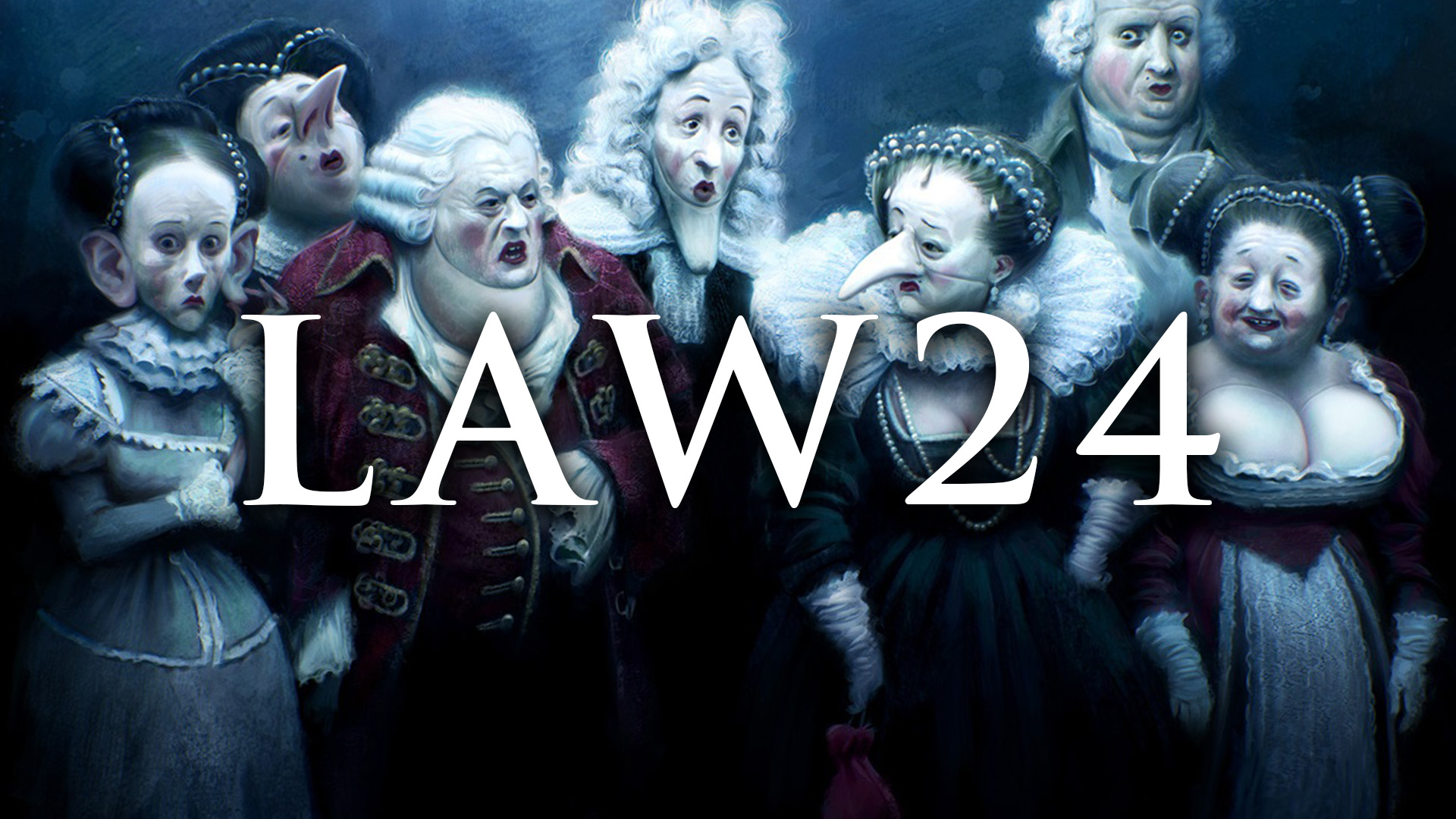Judgement
“The perfect courtier thrives in a world where everything revolves around power and political dexterity. He has mastered the art of indirection; he flatters, yields to superiors, and asserts power over others in the most oblique and graceful manner. Learn and apply the laws of courtier-ship and there will be no limit to how far you can rise in the court.”
A courtier is someone who attends a royal court as an adviser or companion to the king or queen. To be a courtier was quite a dangerous game because they were often used as a scapegoat. Living the life of a courtier was like walking life on a tight rope; courtiers had to learn to master the balance between pleasing, while not pleasing too much. It was a dangerous game, but there is a lot to learn from these magicians of behaviour.

So how do we make these stories relatable to the common 21st century man and women? Think of this law as exemplifying the modern day workplace and social group.
Your boss = the king.
Your superiors = other nobility.
Your colleagues = other courtiers.
As we continue to the 15 laws of court politics, reflect on how the following power and social dynamics can relate to your social group and workplace.
The Laws Of Court Politics















A conclusive quote that ties all these mini-laws together:

Scenes Of Court Life: Exemplary Deeds & Fatal Mistakes
Scene 1
“Alexander the Great, conqueror of the Mediterranean basin and the Middle East through to India, had the great Aristotle as his tutor and mentor, and throughout his short life he remained devoted to philosophy and his master teachings. He once complained to Aristotle as his mentor he had no one with whom he could discuss philosophical matters. Aristotle responded by suggesting that he take Callisthenes, a former pupil of Aristotle and a promising philosopher in his own right, along on the next campaign. Aristotle had schooled Callisthenes in the skills of being a courtier, but the young man secretly scoffed at them. He believed in pure philosophy, in unadorned words, in speaking the naked truth. If Alexander loved learning so much, Callisthenes thought, he could not object to one who spoke his mind. During one of Alexander’s major campaigns, Callisthenes spoke his mind one too many times and Alexander had him put to death.”

Interpretation
“In court, honesty is a fool’s game. Never be so self-absorbed as to believe that the master is interested in your criticisms of him, no matter how accurate they are.”
Callisthenes broke many of the previous mini laws, such as: ‘#5: Alter Your Style & Language According To The Person You Are Dealing With’ and most importantly ‘#8: Never Criticize Those Above You Directly.’ Callisthenes arrogance and dogma blinded him as he contradicted both laws which ended in his death.
Scene 3
“French architect Jules Mansart received commissions to design minor additions to the Versailles for King Louis XIV. The courtier Saint-Simon described Mansart’s technique in dealing with the king: “His particular skill was to show the king’s plans that purposely included something imperfect about them, often dealing with the gardens, which were not Mansarts specialty. The king, as Mansart expected would put his finger exactly on the problem and propose how to solve it, at which point Mansart would exclaim for all to hear that he would never have seen the problem that the king had so masterfully found and solved; he would burst with admiration, confessing the next king was but a lowly pupil. Mansart received received a prestigious royal commission: Although he was less talented and experienced than a number of other French designers, he was to take charge of the enlargement of Versailles. He was the king’s architect from then on.”

Interpretation
“Mansart has seen how many royal craftsman in the service of Louis XIV had lost their positions, not through lack of talent but through a costly social blunder. He would not make that mistake. Mansart always strove to make Louis feel better about himself, to feed the king’s vanity as publicly as possible.”
“Never imagine that skill and talent are all that matter. In court the courtiers art is more important than his talent; never spend so much time on your studies that you neglect your social skills. And the greatest skill of all is the ability to make the master look more talented than those around him.”
Mansart executed ‘#12: Be Self Observant’ and ‘#3: Be Frugal With Flattery’ as he was aware and intelligent enough to not overdo his flattery and compliments. By downplaying his own contributions he made the king feel larger than he was.
Scene 7
Scene 11
“Winston Churchill was an amateur artist, and after World War II his paintings become collectors items. The American publisher Henry Luce, (creator of Time and Life magazines) kept one of Churchills landscapes hanging in his private office. On a tour through the United States , Churchill visited Luce in his office, and the two men looked at the painting together. The publisher re-marked, “It’s a good picture, but I think it needs something in the foreground — a sheep, perhaps.” Much to Luce’s horror, Churchill’s secretary called the publisher the next day and asked him to have the painting sent to England. Luce did so, mortified that he had perhaps offended the former prime minister. A few days later the painting was shipped back, but slightly altered: a single sheep now grazed peacefully in the foreground.”
Interpretation
Churchill was a very powerful man, but so was Luce. A slight equality lay between them. “What did Churchill have to fear from an American publisher? Why bow to the criticism of a dilettante?” Consider the following.


Originally Posted
